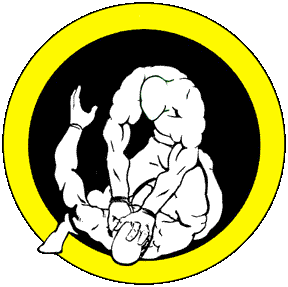Fans May Feel Cheated, But Hopkins Bout Ended Fairly
Posted on | October 16, 2011 | No Comments

By: Patrick McElligott
“One thing is guaranteed This is a fantastic matchup which should live up to and may even surpass expectation.”
Daniel Cann; October 16 preview of Hopkins vs Dawson; BoxingInsider.com
Last night’s Hopkins vs Dawson PPV card caused a rare disagreement between my son Darren and I. He expressed his belief that, as a member of the boxing community, I “owed it to the legend of Bernard Hopkins” to purchase the bout. I said that, considering both the price and the anticipated pace of the main event, I would opt to watch it next weekend on HBO. When he persisted in pressuring me, I suggested that he pay for it. End of discussion.
This article is largely based upon watching the fight on YouTube, and reading numerous press accounts. I’ve also discussed the outcome with friends from FaceBook, who were as upset by the outcome than with paying to watch it on PPV.
Bernard Hopkins is on the short list of the greatest middleweight champions in boxing history. Although he did not enjoy the commercial success of lesser talents in the sport, the hard-core boxing community recognized that Hopkins combined extraordinary physical and mental skills. He was so good, that even his two highest profile defenses – against Tito Trinidad and Oscar de la Hoya – were so one-sided that the casual fan could not fully appreciate what they were watching.
There were many, many other very talented challengers for B-Hop’s title. Contenders such as William Joppy, Antwun Echols, Keith Holmes, Robert Allen, and Syd Vanderpool were quality opposition. But Bernard Hopkins did not have the promotional machine needed to make him a media darling. He was instead one of the most solid champions of any era. More, there was an edge to Bernard outside the ring; the warrior who sometimes described himself as a wolf inside the ring, was one of sports’ lone wolves, who’s personality did not meet the image the big promoters were seeking.
In 2005, his career took a turn, when he faced a very talented young contender, Jermain Taylor. Before their May 7 bout, I had predicted (on another internet forum) that Taylor would out-box Hopkins in a close fight, doing enough to take the title when the scorcards were read. Despite B-hop’s legendary self-discipline, it seemed impossible for him to maintain his strength at middleweight. Taylor would win another close fight at the end of 2005.
It appeared that Hopkins’ career was probably over – with “appeared” being the key word. If he had retired, knowledgable people would have definitely rated him among the greatest middleweights ever. But he had other plans. In June of ’06, he challenged Antonio Tarver for the light heavyweight crown. Tarver, who had capitalized on Roy Jones, Jr.’s mistake of bulking up to win a “title” from John Ruiz, then trimming back down in size, had opted to gain weight for a role in a 2005 fight fim. Dropping that weight to defend his title against Bernard was a poor choice. Bernard Hopkins had won the light heavyweight title in spectacular fashion.
In that fights, Bernard Hopkins seemed to take a page out of Archie Moore’s book. In the fights that followed, B-Hop began adding his own chapters to boxing history. His schooling of Kelly Pavlik may have been the most impressive. The loss to Joe Calzaghe was rightly disputed. The win over old rival Roy Jones, Jr., seemed more a personal victory, than meaninful to the sport. And, of course, in his second fight with Jean Pascal, Bernard set a new and important record in sports.
Still, there were changes in Bernard inside of the ring. Many older fighters – for examples, think of Sugar Shane Mosley and Evander Holyfield – have up-and-down fights. They are outstanding in one fight, then less impressive in the next; then outstanding, and then less so. To an extent, that has held true for Bernard as well. Pascal did drop him twice in their first fight; Bernard dominated the second bout. Thus, it was questionable which B-Hop would enter the ring this weekend.
Add to that the fact that Hopkins had not seemed eager to fight Dawson during the past three years, despite Chad’s very public calling him out. On one hand, Bernard’s claim that Dawson wasn’t a big draw at the box office was true. Another factor may well have been that Dawson, like Jermain Taylor, was a big, strong young man, coming into his prime. (One of boxing’s clear injustices is that Taylor seems remembered more for his post-Hopkins loses, than his brief fighting prime in 2005.) Style-wise, a fight with Dawson was risky; plus, even a victory would have added little to Bernard’s legend.
Clearly, Dawson is an intelligent fighter, who had watched films of Bernard. Since moving up from the middleweight division, Hopkins has earned a well-deserved reputation for fighting “rough.” Ronald “Winky” Wright noted that Bernard hits low, butts, and uses his elbows. And Wright helped Dawson prepare for this weekend’s fight.
One of the tactics that Bernard frequently has used is throwing a hard right-cross, and then propelling himself into his opponent. When possible, he uses this to place himself on top of his opponent’s torso, when the foe bends to avoid that righthand punch. By not only placing himself on top – but by pushing down – Bernard has succeeded in tiring out several of his opponents. Is this an effective tactic? Yes, in general. Is it legal? Not really.
That Bernard had been pushing Chad Dawson down in that second round is beyond question. Indeed, the referee had warned him about this moments before the fight’s ending. And if one watches the replay of the final seconds, sure enough, Bernard throws a big right, propells himself into Chad, and begins pushing downward. There are really only two options here: first, that this generation’s Old Mongoose did so intentionally; or second, that Bernard is prone to making amateurish mistakes. I think that we can safely conclude it was purposeful.
Chad Dawson dipped-and-twisted. This is the most simple and effective way to get your opponent off your back. The result was that Bernard went down in a violent manner, and suffered a serious injury to his shoulder. It was clearly not a knockdown that resulted from a punch. Nor was it a result of a foul by Chad Dawson.
When referee Pat Russell asked Hopkins if he could contiinue, Bernard responded by saying he could, but with only one arm. That was, though unintentionally, the wrong answer for a fighter that wants to continue. Pat Russell is not among my favorite referees, though he is competent. The HBO announcers – who apparently have forgotten that they have, in the past, made note of the “punch-and-propell” tactic – felt that Russell should have ruled the bout a “no contest.” Had it been a case of no foul, or of Chad committing an unintentional foul, a no contest ruling would have been correct. But the fact is that Bernard was attempting to do something he had just been warned about, and that he sustained a serious injury as a result.
It wasn’t pretty. Fans did not get their money’s worth, at least from the main event. But Russell made the correct ruling, however unpopular. And Chad Dawson won by TKO, fair and square. Chad won the title, and does not deserve any discredit from the unpopular ending.
Tags: Antwun > Antwun Echols > Auto > belief > Bernard Hopkins > Bout > boxing community > boxinginsider > card > career > casual fan > com > De La Hoya > discussion > draft > End > event > facebook > fight > HOYA > keith holmes > lone wolves > matchup > mcelligott > media darling > middleweight > middleweight champions > October > Opposition > Oscar De La Hoya > pace > ppv card > Reading > ring > s hopkins > son darren > syd vanderpool > title contenders > tito trinidad > victory > Weekend > William Joppy



